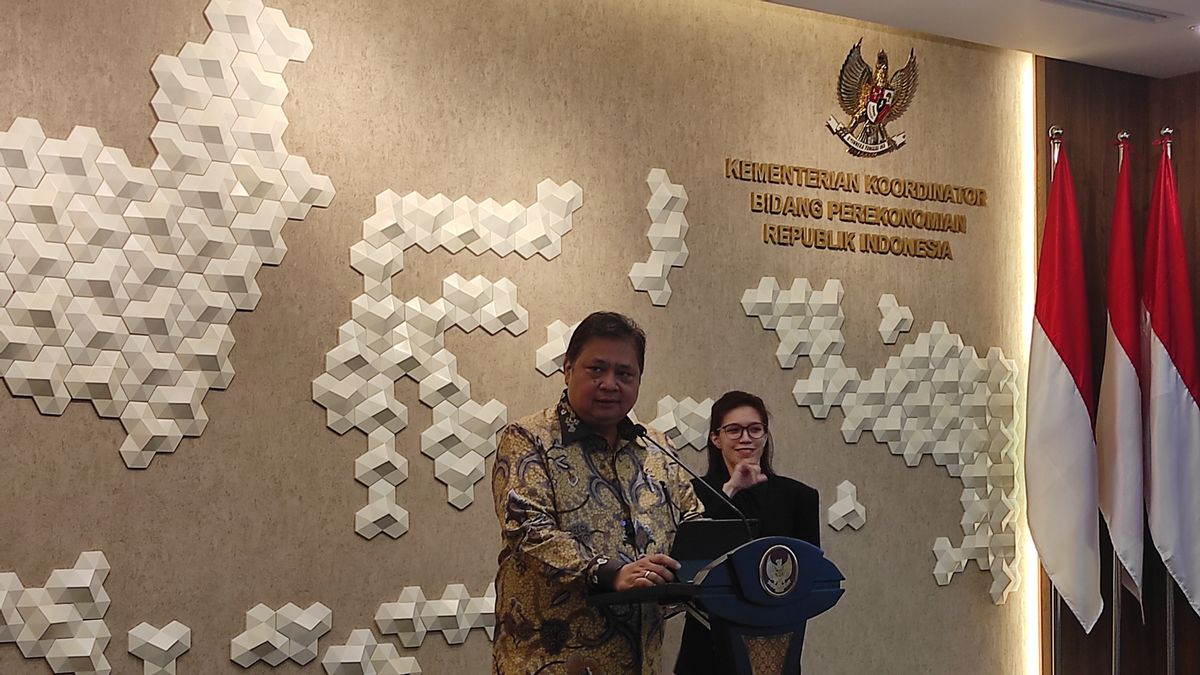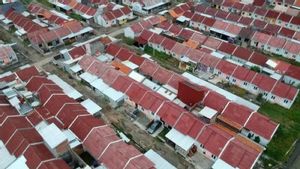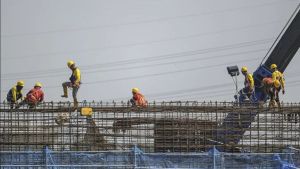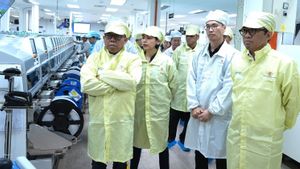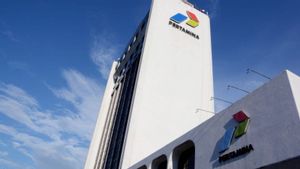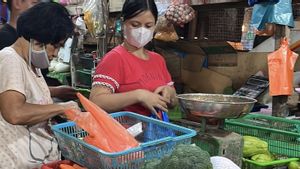JAKARTA - The government has issued the Decree of the Coordinating Minister for Economic Affairs Number 416 of 2023 concerning the Implementing Team and the Working Group of the National Export Improvement Task Force as a follow-up to Presidential Regulation Number 24 of 2023 concerning the National Export Improvement Task Force.
Coordinating Minister for Economic Affairs Airlangga Hartarto acts as Head of the Steering Team and consists of related Ministers and business actors.
Secretary of the Coordinating Ministry for Economic Affairs Susiwijono Moegiarso said the task force would seek to improve national export performance in order to strengthen trade balance and encourage economic growth both through strengthening export supply, diversifying export markets, strengthening financing and international cooperation, and developing MSME exports.
"Efforts to explore in order to open new markets for export development will also continue to be carried out by the government," he explained in his official statement, Monday, February 19.
In addition, the National Export Improvement Task Force has set 12 priority countries for Indonesia's export destinations, namely Saudi Arabia, the Netherlands, Brazil, Chile, China, the Philippines, India, Kenya, South Korea, Mexico, the UAE, and Vietnam.
Susiwijono said that in addition to determining the 12 priority export destination countries, the Task Force has also set a list of priority export products.
The priority export products set start from fish and processed fish, swallow's nest, coconut and processed coconut, processed coffee and spices, vegetable and margarine, cocoa, processed foods, mangic and animal feed, cement, chemical products, rubber and products from rubber, skin and products from skin, pulp and paper, TPT and footwear, precious metals and jewelry, machinery, electronics, automotive, furniture, and toys.
In addition to optimizing the market potential that has been determined, the Export Improvement Task Force is also focusing on expanding market access by encouraging the completion of agreement negotiations, especially the Indonesia-EU CEPA, the opportunity for Indonesia to enter the Comprehensive and Progressive Agreement for Trans-Pacific Partnership (CPTPP) trading block, and access Indonesia to become a member of the Organization for Economic Co-operation and Development (OECD).
Susiwijono said that a number of developed countries that are currently experiencing a contraction in economic growth, namely Japan and the UK, are mainly due to high inflation rates and weakening domestic demand.
"Economic growth contracted in two consecutive quarters signals that Japan and Britain will enter a technical recession, although it is still too early to judge that the two countries will enter a state of economic recession," he said.
According to the National Bureau of Economic Research (NBER), the recession itself broadly can be interpreted as a significant decline in economic activity spread across the economy, lasting more than a few months, and usually seen in real GDP, real income, employment, industrial production, and wholesale sales.
Observing these conditions, the government continues to monitor the impact of the transmission of the global economic slowdown on the national economy, especially Japan.
Susiwijono said Indonesia has good cooperative relations with Japan, such as in terms of investment and export-imports. Japan is one of the main export destinations for Indonesia with the main commodities of coal exports, electronic components, nickel and automotive.
It was noted that Indonesia's exports to Japan throughout 2023 were ranked 4th with a total of 18.8 billion US dollars, while the Foreign Direct Investment Japan (FDI) to Indonesia in 2023 was also ranked 4th with a total of 4.63 billion US dollars.
SEE ALSO:
Susiwijono added that Indonesia's trade balance in January 2024 will continue its surplus trend of 45 consecutive months of USD 2.02 billion supported by the performance of the non-oil and gas sector of USD 3.32 billion, but the performance of the oil and gas sector still shows a deficit of USD 1.30 billion.
"This is one of the concerns of the government, especially the National Export Improvement Task Force team. For this reason, each working group is currently preparing a work plan in the form of a quick win, short-term, medium-term, and long-term plans to overcome this," he said.
The English, Chinese, Japanese, Arabic, and French versions are automatically generated by the AI. So there may still be inaccuracies in translating, please always see Indonesian as our main language. (system supported by DigitalSiber.id)
